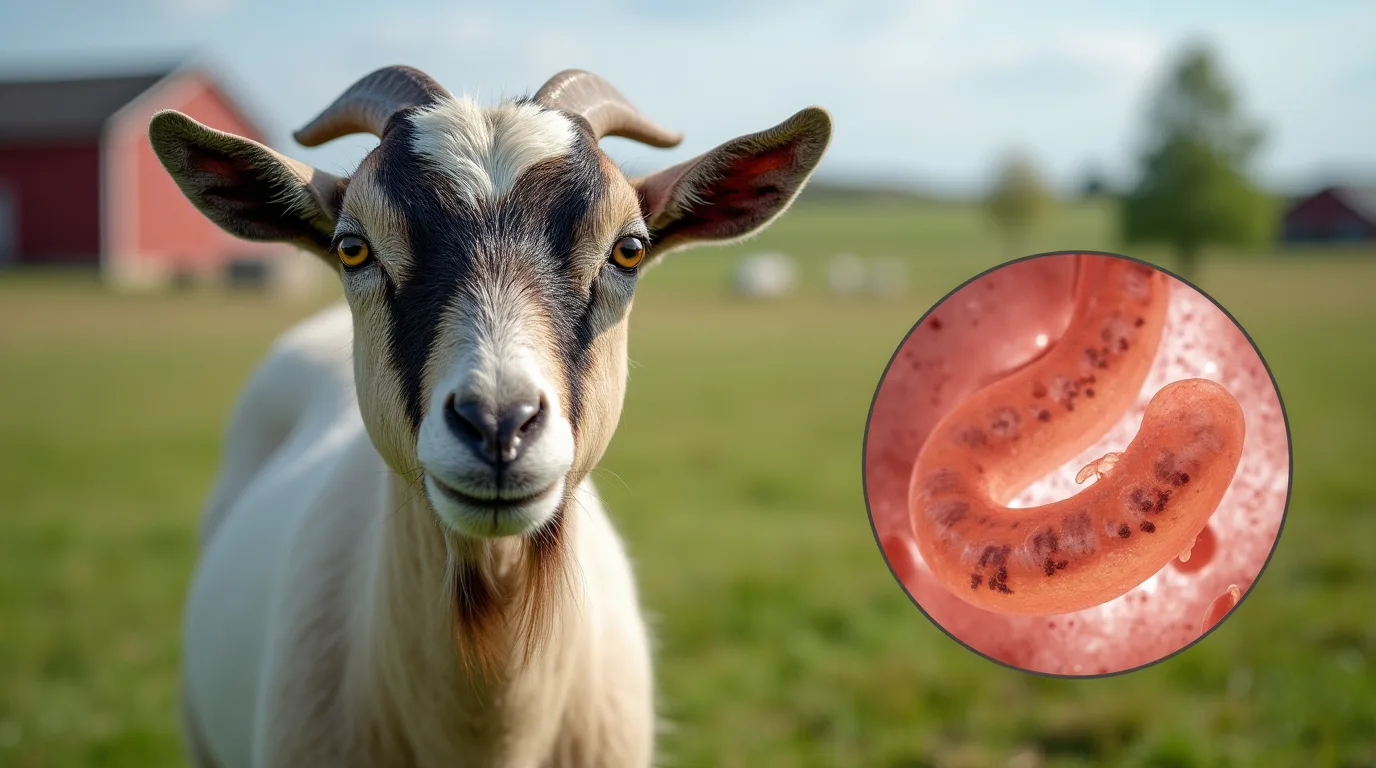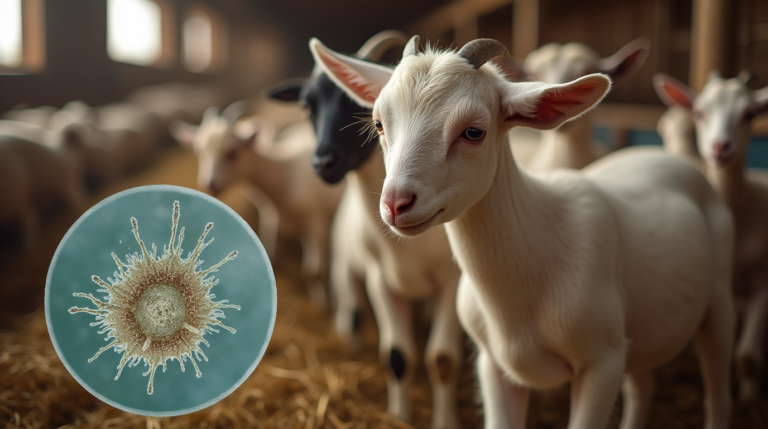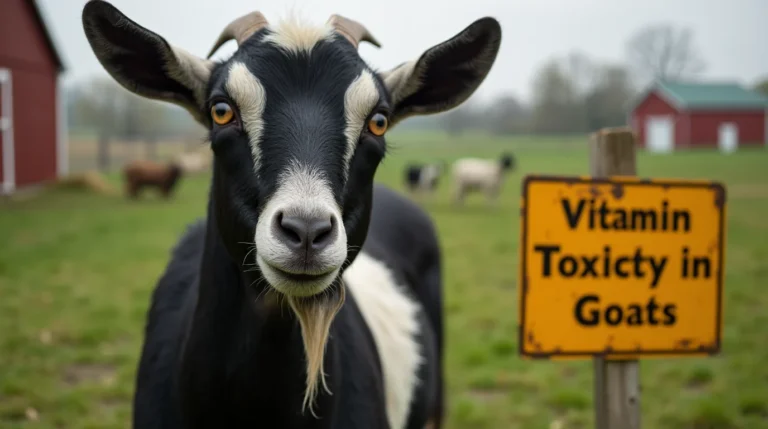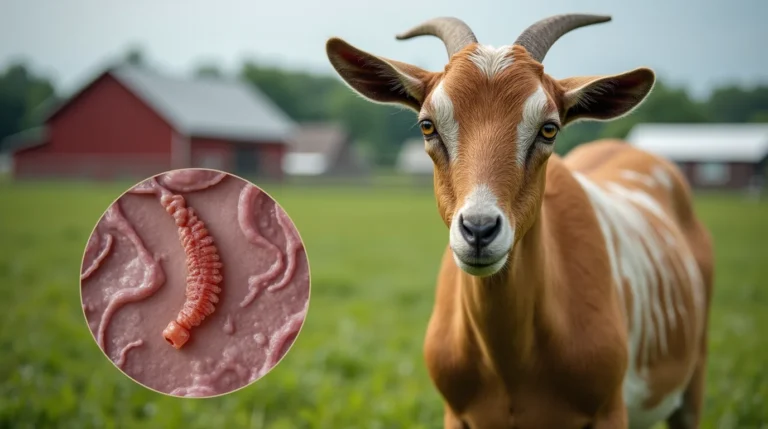Protect your goat herd from dangerous Intestinal Parasites in Goats . Learn critical signs, effective treatments, and prevention strategies to maintain optimal goat health.
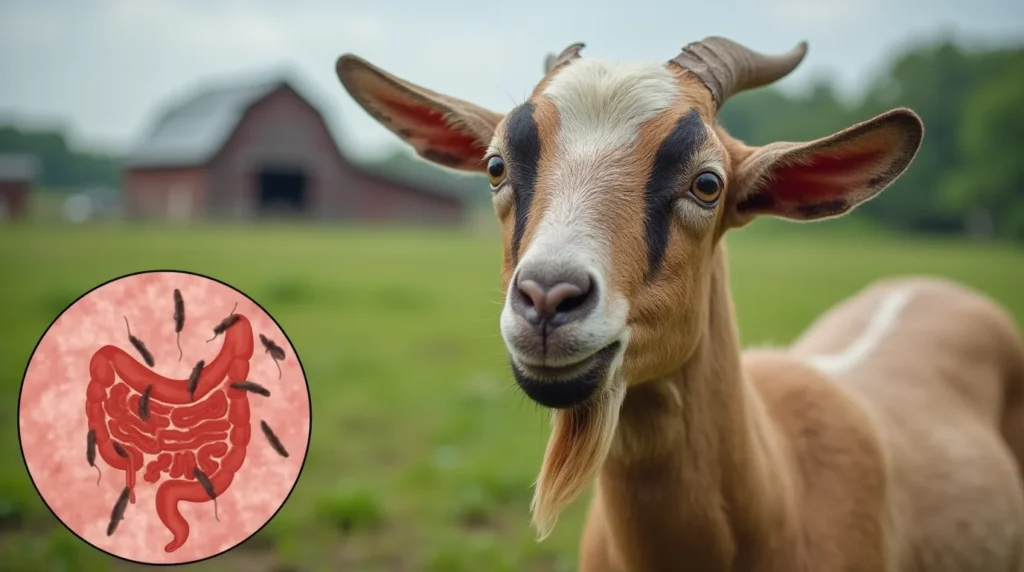
Table of Contents
Intestinal parasites in goats represent a significant threat to herd health, productivity, and overall animal welfare. These microscopic invaders can rapidly compromise a goat’s immune system, leading to severe health complications if left untreated. Whether you’re a small-scale farmer, livestock manager, or passionate goat enthusiast, understanding the intricacies of intestinal parasites is crucial for maintaining a healthy and thriving goat population.
Understanding Intestinal Parasites in Goats
What Are Intestinal Parasites?
Intestinal parasites are organisms that live and feed within a goat’s digestive system, deriving nutrients at the host’s expense. The most common types include:
- Haemonchus contortus (Barber’s Pole Worm)
- Primary blood-sucking parasite
- Causes severe anemia
- Extremely prevalent in warm, humid climates
- Ostertagia circumcincta
- Abomasal parasitic worm
- Damages stomach lining
- Impairs nutrient absorption
- Trichostrongylus species
- Inhabits small intestine
- Causes significant digestive disruption
- Reduces feed conversion efficiency
Transmission Mechanisms
Intestinal parasites spread through multiple pathways:
- Contaminated pasture
- Infected fecal matter
- Shared grazing areas
- Direct animal-to-animal contact
- Inadequate farm sanitation
6 Critical Signs of Intestinal Parasites in Goats
1. Weight Loss and Poor Body Condition
- Sudden, unexplained weight reduction
- Visible muscle wasting
- Reduced feed intake
- Decreased overall body score
2. Pale Mucous Membranes
- Anemic appearance of gums
- White or light-colored inner eyelids
- Indicates significant blood loss
- Potential sign of severe parasitic infection
3. Diarrhea and Digestive Disturbances
- Watery, inconsistent stool
- Potential blood in feces
- Abdominal discomfort
- Reduced nutrient absorption
4. Bottle Jaw (Mandibular Edema)
- Soft, fluid-filled swelling beneath the jaw
- Classic symptom of advanced parasitic infection
- Indicates significant protein loss
- Requires immediate veterinary intervention
5. Reduced Milk Production
- Decreased lactation in dairy goats
- Lower milk quality
- Compromised nutritional output
- Potential reproductive challenges
6. Lethargy and Weakness
- Decreased activity levels
- Reduced energy
- Reluctance to move
- Potential respiratory complications
Diagnostic Approaches
Fecal Egg Count (FEC)
- Gold standard for parasite detection
- Quantifies parasite load
- Helps design targeted treatment protocols
Blood Tests
- Assess anemia levels
- Evaluate overall health status
- Determine immune system response
Treatment Options
Targeted Deworming Strategies
- Chemical Dewormers
- Benzimidazoles
- Macrocyclic lactones
- Imidazothiazoles
- Sustainable Rotation
- Prevent drug resistance
- Alternate medication classes
- Monitor effectiveness
Natural Supplementation
- Diatomaceous earth
- Herbal dewormers
- Nutritional support supplements
Prevention Strategies
Pasture Management
- Implement rotational grazing
- Maintain clean, dry environments
- Avoid overstocking
- Regular pasture rest periods
Nutrition and Immune Support
- High-quality, balanced diet
- Mineral supplementation
- Stress reduction techniques
- Regular health monitoring
Quarantine Protocols
- Isolate new animals
- Conduct initial parasite screenings
- Implement strict biosecurity measures
Recommended Pet Products on Amazon
- Livestock Dewormer Kit
- Goat Mineral Supplement Blend
- Fecal Testing Microscope Slide Set
- Professional Veterinary Examination Gloves
Frequently Asked Questions (FAQ)
Q1: How often should goats be dewormed? A: Recommended every 4-6 weeks, depending on environmental conditions and veterinary guidance.
Q2: Can intestinal parasites be transmitted to humans? A: Some parasites can potentially spread, emphasizing the importance of proper hygiene and management.
Q3: Are young goats more susceptible? A: Yes, kids have less developed immune systems and are more vulnerable to parasitic infections.
Conclusion
Managing intestinal parasites in goats requires a comprehensive, proactive approach. By understanding transmission mechanisms, recognizing symptoms, and implementing strategic prevention and treatment protocols, goat owners can significantly improve herd health and productivity.
Call to Action: Share your experiences with goat parasite management in the comments below! Interested in more expert livestock care tips? Visit BlithePet for comprehensive guides and professional recommendations.

